Friends and former students came from far and wide and converged at the Graduate School of Biosphere Science on the 2nd of February, 2018 to celebrate the distinguished career of Professor Kazuya Nagasawa of the Aquaculture Laboratory. He will retire from the academic world on March 31st after almost 40 years of outstanding research and teaching in the field of aquatic parasitology, or aquaparasitology, a term he originally coined in 1985 after realizing that fish parasitology, his original field of research interest, should be expanded to include the broader assemblage of parasites in the aquatic world.
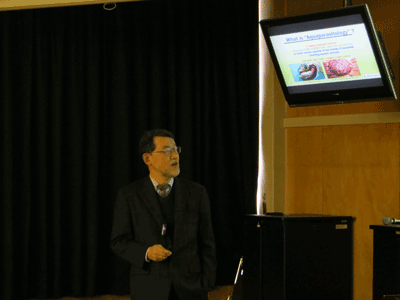
The lecture hall at C206 was packed to the rafters with many colleagues, current and former students, friends and members of the general public in attendance. The recurring theme of the special lecture is the ubiquity of parasites in all sizes, color and form infecting every living creature including humans, leading to the term “a wormy world.” Indeed, no animal is free from parasitic infection, according to Professor Nagasawa. In his lecture, he traced his early beginnings starting at the University of Tokyo which awarded him his doctorate. His research career started at the Hokkaido Fisheries Experimental Station in Hakodate in 1981 where he studied salmon and its parasites. It was in Hakodate where he discovered and described the most bizarre and most impressive parasitic copepod species on Japanese scallop, Pectenophilus ornatus, representing a genus and species new to science. He then moved to the National Research Institute of Far Seas Fisheries in Shizuoka and then to the National Research Institute of Aquaculture in Tochigi where he continued his research. In 2005, he assumed the position of Professor at the Aquaculture Laboratory, Graduate School of Biosphere Science, Hiroshima University where he remained to this day. In his 13 years as an academic, he has hosted two postdoctoral research fellows, supervised 13 Ph.D. students, 11 master and seven bachelor course students many of whom have gone on to pursue productive careers in fisheries and aquaparasitology. From his original work on salmon parasitology, his work has expanded into the study of parasites in freshwater and marine fishes, mollusks, echinoderms and more. Throughout his productive career, he has published more than 300 research papers, many in international journals. Among the parasitic copepods alone, he and his students described one new family, five genera and at least 62 species as new contributions to science!
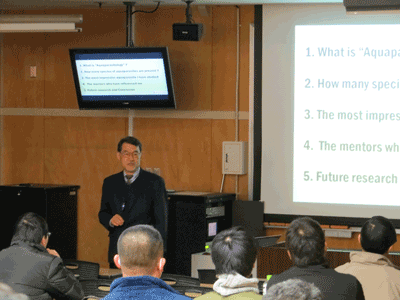
In his farewell lecture which was delivered totally in English, Professor Nagasawa paid tribute to two scientists who left a profound and lasting impression on him. Professor Leo Margolis of the Pacific Biological Station at Nanaimo, British Columbia, Canada extended his remarkable support over the years and forged a strong bond of friendship across the Pacific Ocean, while Professor Jose Bresciani of the University of Copenhagen in Denmark has been an extraordinary collaborator and special friend all these years. The many forms of kindness that were shown by these two eminent scientists to Professor Nagasawa led him to attribute “human factor” as a necessary ingredient towards excellence in science. For science to serve humanity well, Professor Nagasawa believes it needs to have a human face and purpose.
Retirement is not the end of the road for Professor Nagasawa. He plans to return to his home in Shizuoka to continue his research. He feels urgent research is needed to study aquatic parasites in this era of rapid environmental change and global warming. Many economic species are threatened by overfishing and habitat loss besides being parasitized by species not yet given any scientific names. Towards the end of his lecture, he expressed his sincere thanks to the Japan Society for the Promotion of Science and the Japanese taxpayers for the research support he has been given all these years. He singled out his greatest supporter and wife of almost 40 years, Eiko Nagasawa for being the outstanding and diligent silent partner in his life.
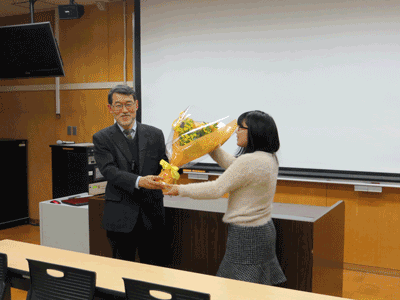
One of the questions asked by parasitologists including Professor Nagasawa himself is the total number of parasite species around the world. Of course, it is impossible to answer because the diversity of parasites is simply bewildering. The entire Graduate School of Biosphere Science at Hiroshima University expresses its profound thanks for everything that Professor Nagasawa has contributed and made his indelible marks. We wish him all the best as he embarks on his continuing journey to look for answers to his most intriguing questions in science.
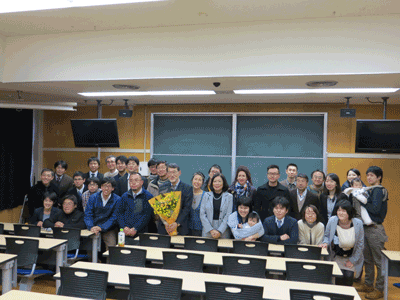

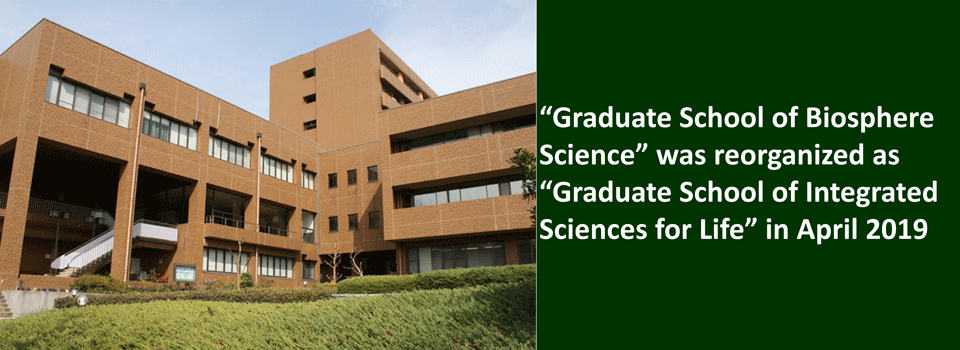
 Home
Home
